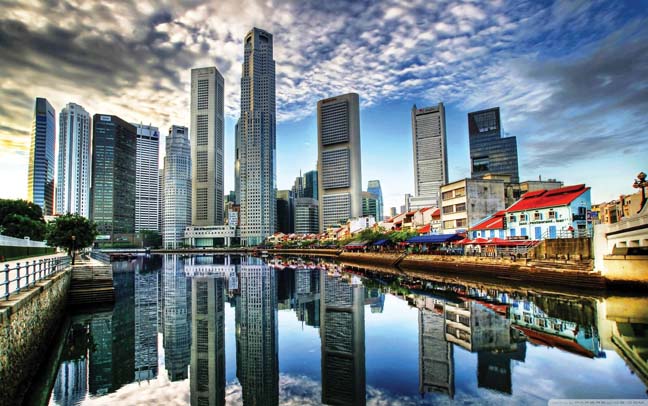While Singapore has long been South East Asia’s biggest success story (with property prices to match), the current climate poses another, less rosy picture.
With a declining economy and fears of a recession in the air, real estate values have hit new lows, and record numbers of agents are turning their backs on the business entirely. The downturn may seem sudden to some, but for those keeping a beady eye on things, this was to be expected.
“Singapore is at a crossroads at this point,” says Dan Toh, founder and CEO of consulting firm RunningStream International. “The country is facing new challenges that require it to innovate its way through the rise of ASEAN and a very different world economic landscape due to globalization.”
Singapore has achieved phenomenal economic progress over the last 50 years. However, as a country reliant on outside resources, its continued success depends on a great many factors outside its immediate control.
“The equalization of economies in ASEAN means that the neighboring countries are getting increasingly sophisticated. Infrastructural advantage is being eroded by the pervasiveness of the internet, and its geographical advantage by the progress of regional logistic capabilities,” Toh explains.
This is especially true in light of China’s effort to improve the region through rails, ports and shipping canals. Singapore will likely be collateral damage in the process.
While in the real estate world, cooling measures may have effectively moderated price growth, the overall declining economy poses a much greater risk. Singapore is seeing a drastic fall in transactions and rental demand as the country becomes less attractive both in terms of costs and infrastructural advantages for business. Fewer jobs and fewer foreigners equate to less overall demand, especially in the luxury segment.
“Increasing unemployment and a weak rental market means that now is not the best time to be investment hunting in Singapore,” Toh says. “That said, Singapore will remain a key player in ASEAN and will continue to serve as a base for many businesses. The property market will certainly not crash.”
If one has to buy now, Toh suggests bargain hunting in prime zones, citing Districts 1, 2, 6, 9, 10 and 11 as districts to watch, whereas River Valley, Newton, Tanglin, Upper Bukit Timah are all pretty exposed to the mid tier foreigners and thus hold significant market risks.
A good bargain, he explains, would be in the area of 20 percent discount. “Naturally, finding such deals will not be easy. But weak rental conditions and potential weakening of the SGD alongside rising interest rates may motivate foreign owners to seek an exit. Locals will hold out better.”

In terms of the kind of properties investors should consider, two bedrooms allows for the best growth potential and balanced yield, Toh advises. Buyers should only consider buying now if they are wanting to live in – buying a rental property would not be wise given the current outlook.
“Investors should not try to catch a falling knife”
Ideally though, investors would be well advised to wait a couple of years, and late 2017 and early 2018 is when Toh predicts the country’s fortunes may start to change.
“Currently, Singapore prices have escalated to a point where it is non viable,” he says. “Given the current economic challenges I suspect the government will be happy to let the prices fall to increase the country’s competitiveness, and unless business conditions improve, I wouldn’t see the motivation to let prices rise again just yet.”
For this to happen, Singapore will need to reinvent itself and find a new catalyst for growth. At this point, Toh says, this still seems a little distance away, however, he is confident that Singapore’s star will soon rise again.
“The country’s track record should inspire some amount of investor confidence. Singapore will remain a key market, but for its property to boom again we will need to see some major new directions. Only when that happens would I be keen to call a property bull market.
“In other words, investors should not try to catch a falling knife, and instead wait for signs of new upward economic momentum.”
It’s not about property ownership it’s about control! To get more details. Click Here!
Like this article or found it helpful? Share it!
Follow us on Twitter for more news, tips and inspiration. Become our mate on Facebook and explore our Pinterest boards.

